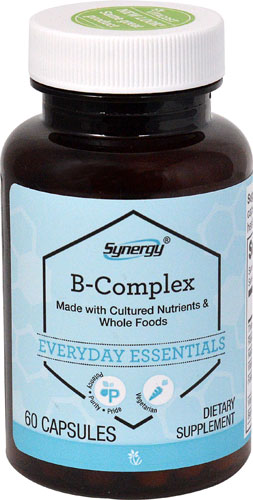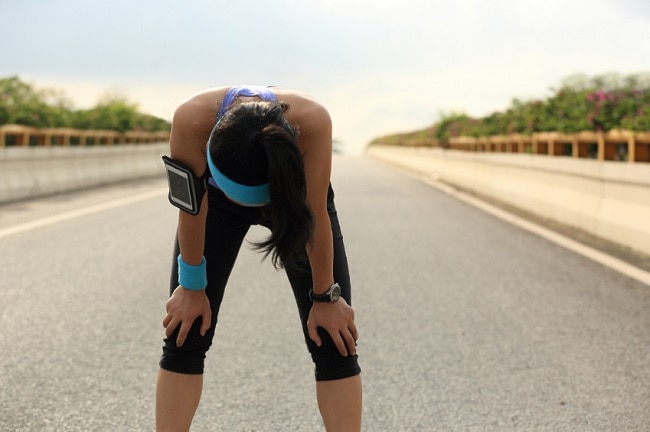Low energy is on the rise. And fit females may be suffering the most. Have you felt anxious or irritable lately? Is recovery taking longer than normal? Are you training harder without seeing results? If you said yes to any of these questions, you could be falling into the Female Athlete Triad trap. Essentially, your body is undernourished. There could be serious consequences to this, including stress fractures, a disrupted reproductive system and increased risk of getting sick.
So…
What is the Female Athlete Triad?
FemaleAthleteTriad.org is a non-profit coalition working to research, educate and support a healthy athletic environment for females. This collaborative group of nursing, athletic and sports medicine organizations says the Female Athlete Triad refers to – no surprise – three health problems that are closely linked to one another: low energy, irregular or missed periods and reduced bone density that’s especially uncharacteristic for your age.
Low energy doesn’t just mean you haven’t had enough coffee. Low energy happens when you aren’t taking in enough calories to support your energy expenditure. At best, this could lead to nutrient deficiency. But since all systems in the body are connected, long-term undernourishment in women can interfere with healthy hormone levels, which in turn interrupts the menstrual cycle and affects bone health.
Who’s at risk?
FemaleAthleteTriad.org notes that “having just one part of the Triad is enough,” but it’s particularly concerning if you show signs of all three. Unfortunately, it’s not uncommon for women to spiral down that path. When you’re dedicated to and passionate about an activity, you wouldn’t think twice about feeling a little tired. You would even welcome a missed period (or two). After all, training hard takes a lot out of you. The issue arises when women don’t track their caloric intake and unknowingly consume less than their bodies need.
The complete opposite can be just as detrimental, though. Active females – of any level – very often become obsessed with counting calories and keeping track of everything they eat. From a young age, females are programmed with the idea that they have to look a certain way. Social networks streaming G-string-clad booties (I’m looking at you, Instagram) are just as bad as fashion magazines sporting unrealistically thin models. It’s no wonder that body image issues run rampant. Even professional athletes have been known to strive for the “body of an athlete” (whatever that is). As a Shape.com article on the Triad points out, “If you’re not eating enough to support your workouts, you’ll be undernourished and your health will suffer, no matter how ‘healthy’ you look.”
What’s the solution?
If you’ve experienced any of the warning signs that come with the Female Athlete Triad, seek medical attention right away. With a team of experts to help, you’ll be guided to find the right balance of calories in versus calories out. You’ll also want to focus on feeding your body key nutrients to support your activity level. No one’s telling you to stop exercising or playing the sport you love. But your performance will suffer if your body is not properly nourished from head to toe.
The content of your calories matters, though. To help maintain an active woman’s energy levels, healthy hormones and an optimal weight, make sure you’re getting enough of these nutrients in your diet.
Calcium, magnesium & vitamin D: This is a combo deal that rallies to support joint health and flexibility, which will come in handy when you’re pounding the pavement for 26.2 miles or showing off your arabesque. You really want to be sure you’re getting them all, preferably together. Calcium can be found fairly easily in foods, such as dairy products, soy beans, spinach and other leafy greens. Magnesium and vitamin D are harder to find in foods. But a well-formulated supplement can provide all three nutrients in one.*
Iodine: According to a 2012 report by the Centers for Disease Control & Prevention (CDC), women ages 20-39 have the lowest iodine levels compared to all other age groups. Iodine is a key component of thyroid hormones. The CDC notes that “deficiency can also cause hypothyroidism…and other growth and developmental abnormalities.” You can get adequate iodine from dairy products, whole grains and natural sea salt to help keep you as healthy as an athlete should be.
B vitamins: What does every athlete want more of? Energy! B vitamins are helpful in converting carbs into energy, as well as supporting overall metabolism.* There are many, many B vitamins, but a study by the American Journal of Clinical Nutrition suggests that athletes may have an increased need for thiamine (B1), riboflavin (B2) and B6. The increased nutrient requirements could be the result of insufficient absorption, loss of nutrients during training or an increased need for tissue maintenance and repair. Most athletes can get enough of these B vitamins from eating eggs, lean meat, broccoli, brown rice and enriched breads.
(Side note: pregnant women or those wanting to have kids should be sure to get sufficient folic acid in their diets, as well.)
Healthy fats: Many women, in an attempt to lose weight quickly, restrict themselves from gluten, fat, carbs – you name it! But eating fat does not make you fat. In fact, your body needs a certain amount of this macronutrient to survive. Too little fat can bring you back to the Triad trap with disrupted menstrual cycles and fertility problems.* The American Heart Association recommends adults consume 25-35% of your day’s calories from fat. For the average woman that would mean 55-78 grams, but less than 16 grams of that should come from saturated fats. You mostly want to choose monounsaturated or polyunsaturated fats, like those from olive oil, fish and raw nuts.
The pressure to compete at a higher level or to achieve a particular physique can build up, eventually leading to eating disorders, developmental issues and extreme nutritional imbalances. The Female Athlete Triad can affect any woman at any age. Don’t be afraid to seek help. You’ll have more energy and fewer health concerns if you do!
*These statements have not been evaluated by the Food and Drug Administration. This product is not intended to diagnose, treat, cure or prevent any disease.




